The Rise of ESOPs
Flipkart | Zomato | Policybazaar | Urban Company
In this research blog, we focus on the growing relevance and impact of ESOPs in financial markets as more and more tech startups continue to ring the bell at Dalal Street. If you enjoy reading this analysis, consider funding our research here:
Let’s get started!
The Crorepati ‘Flipsters’
July of 2023 was a game-changing month for employees in India's startup scene. Around 19,000 Flipkart employees collectively received $700 million in cash from a one-time ESOP payout. On one side, many current and ex-employees of this Walmart-owned entity saw it as their stock option dream finally getting achieved, many also speculated this would drive up real estate prices around Bengaluru's outer ring road. This event was the largest ESOP liquidity event in India's startup history, bringing the total ESOP liquidity in startups to about $1.5 billion over the past three to four years, according to data from Qapita:
Founders and HR leaders today realize that it is important to forge a long-term partnership with their key employees for sustainable and long-term value creation. That's why more employees are being offered ownership in the form of ESOPs at both listed and unlisted startups. There could be several reasons for issuing ESOPs: to keep employees long-term, to reward them, to motivate them by giving them ownership rights, or as part of their salary. Often, startups can't afford to pay high salaries in cash, so they offer ESOPs instead.
Note: If our emails end up in the ‘promotions’ tab, please move them to inbox so you don’t miss out on future blogs. Don’t forget to subscribe and join 3K readers!
The Ultimate Rise of ESOPs!
Many people think of ESOPs as simply giving shares of a company to its employees which is not the case. As the full form tells - Employee Stock Option Plan is an ‘option’ given to the employee of a company to acquire ownership in the company in the form of shares of the company. This means that the employees get ownership only if they exercise this option. As with all options generally, there is a time period involved (vesting period) and the price at which those shares can be bought (exercise price) by the employees which generally is at a discount than market rate, along certain conditions. Once the vesting period is complete, and all conditions have been met, the employee can exercise the ESOPs and convert them into actual shares by purchasing them at a pre-determined exercise price.
ESOPs are not new and have been offered by many listed companies and banks, such as HDFC Bank, to their employees. However, their importance is increasing year after year. As per the Grant Thornton research of 2021 on ~700 listed companies from multiple sectors, ESOPs are roughly just 3% of the average equity dilution for companies’ total paid-up equity. But this % is changing fast today, more and more businesses today are in the early stages and many unlisted established startups are pressing for having as high as 10% (or even more) of equity in the company given to the key employees. Let’s take the example of the Urban Company.
Urban Company manages a blue-collar skilled fleet to fulfil the need for various cleaning services, appliance/ electronic repairs, beauticians, etc., at home through app booking. To date, the company has awarded 11% of its current fully diluted cap table as ESOPs, encompassing vested, unvested, and sold ESOPs and these have been granted to 1593 employees and ex-employees. Roughly half of those employees have successfully sold their shares on one of the 5 occasions at the time of secondary sale programs, worth Rs 306 Cr as shown in the table above.
Between 2020 and 2022, the number of unlisted companies covering more than 10% of their employees with ESOP schemes rose from 42% to 58%, meaning 16% more companies expanded their programs to include more employees. Additionally, in 2020, only 31% (10% + 21%) of unlisted companies had an ESOP pool larger than 5%. By 2022, this percentage had surged to 76% (21% + 55%), showing that companies are increasingly willing to allocate a larger share to ESOPs.
We believe this trend will continue going forward as India’s startup ecosystem strengthens and matures. As more startups go public, it's crucial for financial market observers to better understand ESOPs. Next, we shall discuss two recent cases involving listed tech companies - PB Fintech and Zomato, but before that, we shall have a look at how ESOPs are taxed in India.
Taxation on ESOPs: A hypothetical case
Let’s assume Mr. A works for XYZ Ltd and gets 1 share as ESOP of the company at a discounted price of Rs 10 per share which has a market value of Rs 100 per share. Looks like a great deal but is it?
ESOPs are taxed at 2 occasions in India - Once, at the time of exercising and second, at the time of selling the shares.
At the time of exercise of ESOP option: Mr. A will pay taxes on the benefit, which is the difference between the Fair Market Value (FMV) and the exercise price. In this case, it's Rs 90 (100 - 10) and the tax rate depends on Mr. A's income tax slab and this benefit of Rs 90 will be treated as part of his Salary income. Though he hasn’t actually sold his share, but he still has to pay taxes.
At the time of the actual sale of shares: As Mr. A was yet to sell the share, he would have to pay the regular short/long-term capital gains tax when he sells it in future. Let’s assume the share of XYZ Ltd is today valued at Rs. 200 apiece and if he sells the shares now, he would pay the capital gains taxes on Rs 100 (200-100). The lifesaver way to save tax on this gain is by investing the sum received in a residential house property under Section 54F of the Income Tax Act. The amount invested from the share sales proceeds is deducted from their total taxable income for the year.
Now that we understand taxes, let's see how ESOP taxation can actually force you to sell your own shares!
ESOPs that make you sell your founding stake!
Imagine the founding team getting Rs 5,000 Crores worth of ESOPs, but then having to sell their founding stake to pay the tax when those ESOPs got exercised! This happened to 'Yashish Dahiya' and 'Alok Bansal' recently - The founders of Policybazaar.com and Paisabazaar who had to sell their listed parent entity 'PB Fintech' shares worth Rs 1,110 crores, just to pay taxes!
Let's understand⬇️
In the years 2020 and 2021, before getting listed on the Indian stock exchanges, PB Fintech's management approved two pools of ESOPs of little over 2 Crore share options each to be granted to the founders and other eligible employees to reward them for their hard work, and also boost their ownership (skin in the game) which had fallen significantly over the years due to multiple rounds of PE/VC funding.
While the majority of shares were issued to the 2 founders, the vesting period for those ESOPs for converting them into actual shares was decided to be a period between 1 to 5 years. The face value of those ESOPs was just Rs 2/share, and this implied that whenever they would be exercised by the founders, they would have to *pay hefty amounts of taxes* depending on the difference between the prevailing share price of PB Fintech in the market and Rs 2/share as this gain will be considered as part of salary income of founders, implying a ~35 to 40% effective tax rate shall be applied as per the highest tax slab!
So as PB Fintech’s share price reaches to over INR 1300/share, implying the value of those 4 Crore ESOPs issued in 2020-2021 to be well over Rs 5,000 Crores against the face value of just Rs 8 Crores. This meant a big tax liability that the founders had to pay on regular intervals till the year 2024-2025 as and when they converted them. (Just conversion, not actually selling those ESOPs!)
Ultimately, since the founders didn't have so sufficient money in the bank, they had to sell their founding stake worth INR 1,110 Crores on 17th May 2024 to have money to pay the due taxes. Not only this! Selling their founding stake further now implies paying taxes on the capital gains they made on that holding. Hence they shall now end up paying taxes in the form of Salary (on ESOPs exercised), as well as Capital gains (on founding shares sold).
Founder mindset via ESOPs
Zomato released its Q4 FY24 results on 13th May, 2024 and something new emerged - The company has proposed to create an additional ESOP pool of 2% of its existing share capital on a fully diluted basis for senior employees. This is a bold move considering it’s a listed entity now with valuations recently touching $20 Bn, implying ESOPs to be issued could be as huge as about $350-$400 Mn (~ INR 2,900 - INR 3,300 Crores) as of today.
“ESOPs are essential for fostering a culture of long-term thinking and creativity, as well as developing a 'founder mindset' among senior staff. In people-dependent firms like theirs, where superb execution and ongoing innovation are the only predictors of survival, ESOPs are an excellent way to fuel the high-performance culture that they value.”
- Deepinder Goyal, Founder and CEO, Zomato
And considering that Zomato/Blinkit’s head office is based out of Gurugram, and all the senior employees primarily live in Gurugram/Delhi-NCR region, it will be interesting to see the impact on real estate in years to come.
To summarize, this blog aimed to show how ESOPs are becoming more important today and why we need to understand them. We researched and collected data about 4 startups (Flipkart, Urban Company, Policybazaar & Zomato) and how ESOPs are involved in each of the cases. I hope you enjoyed reading it.
That’s it for today, find us on LinkedIn - Aditya and Yash.
Wondering how you can support us?
We aim to keep our blogs free for all our subscribers forever! If you find our content valuable & are willing to support, show some love here⬇️
Disclaimers-
We are not SEBI registered advisors; personal investment/interest in the shares exists for the company mentioned above; this isn’t investment advice but our personal thought process; DYOR (do your own research) is recommended; Investing & trading are subject to market risk; the Decision maker is responsible for any outcome.



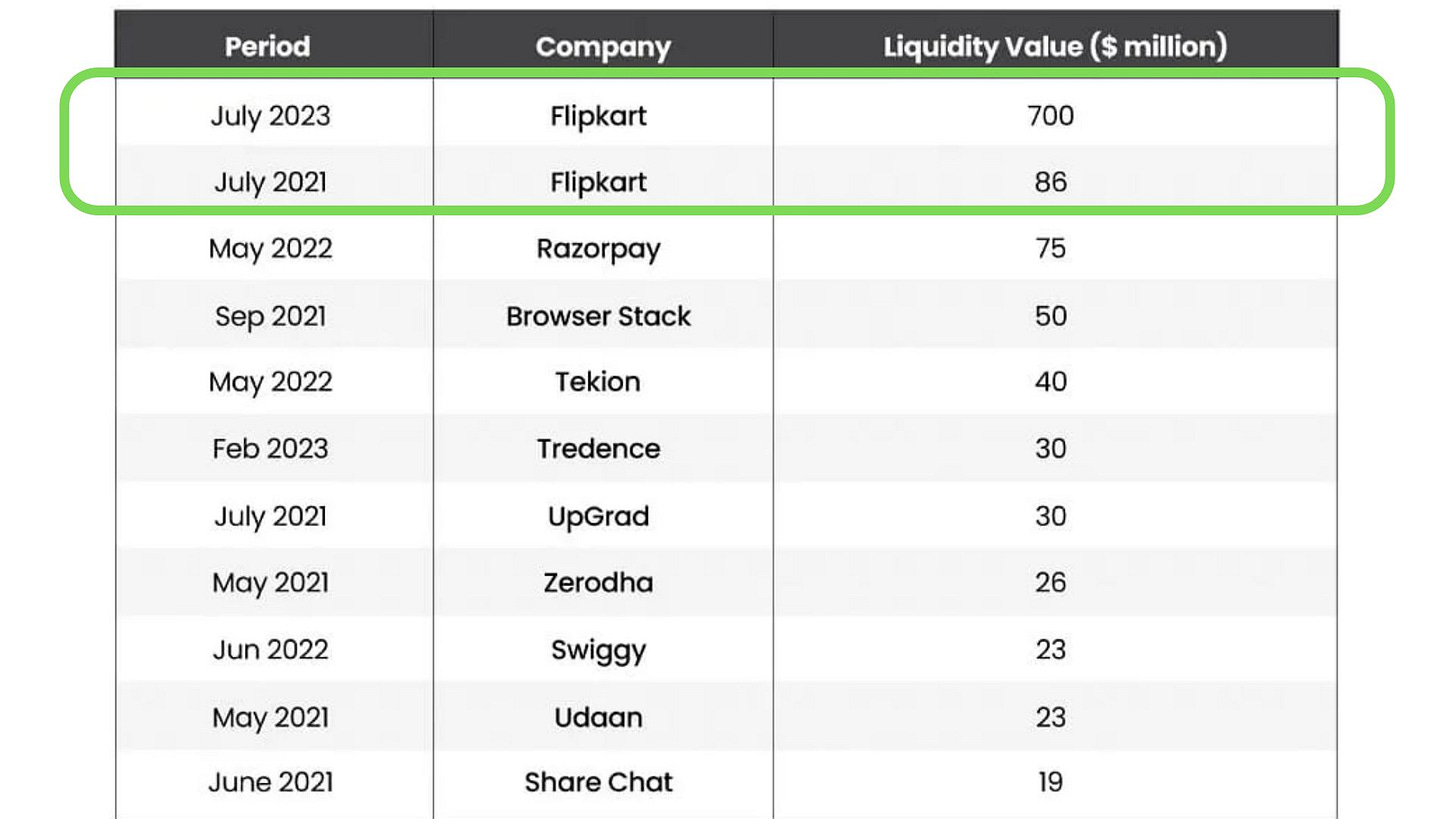

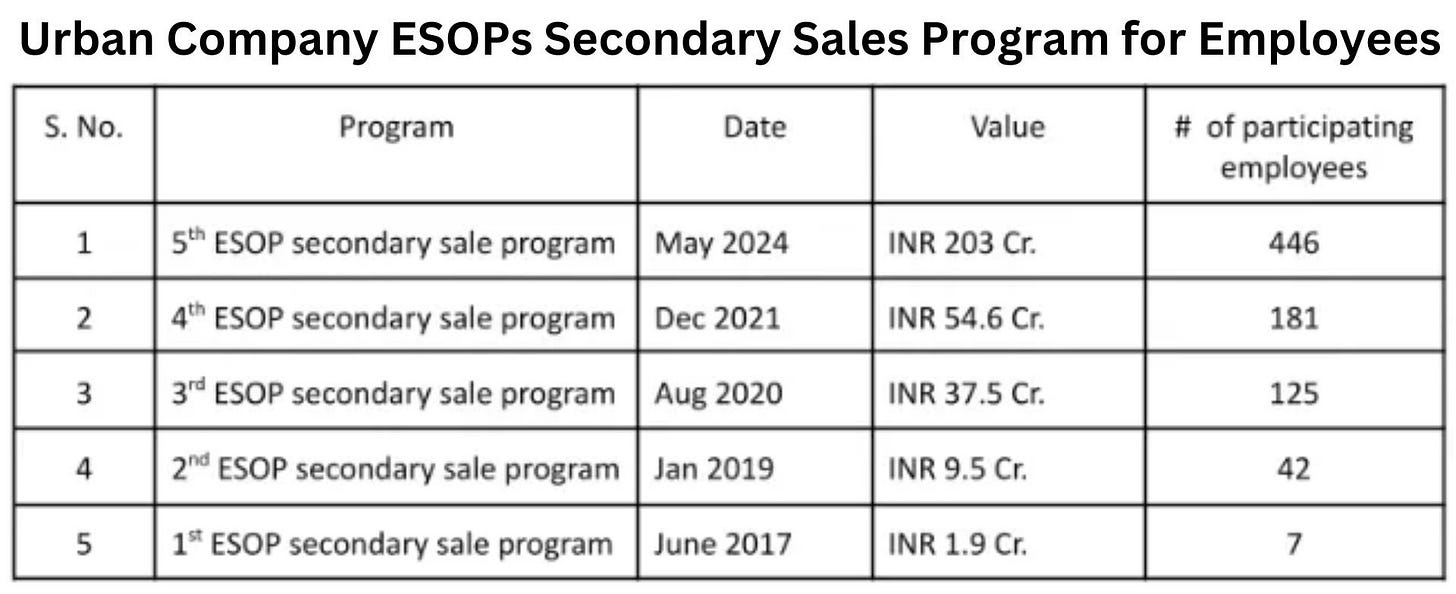
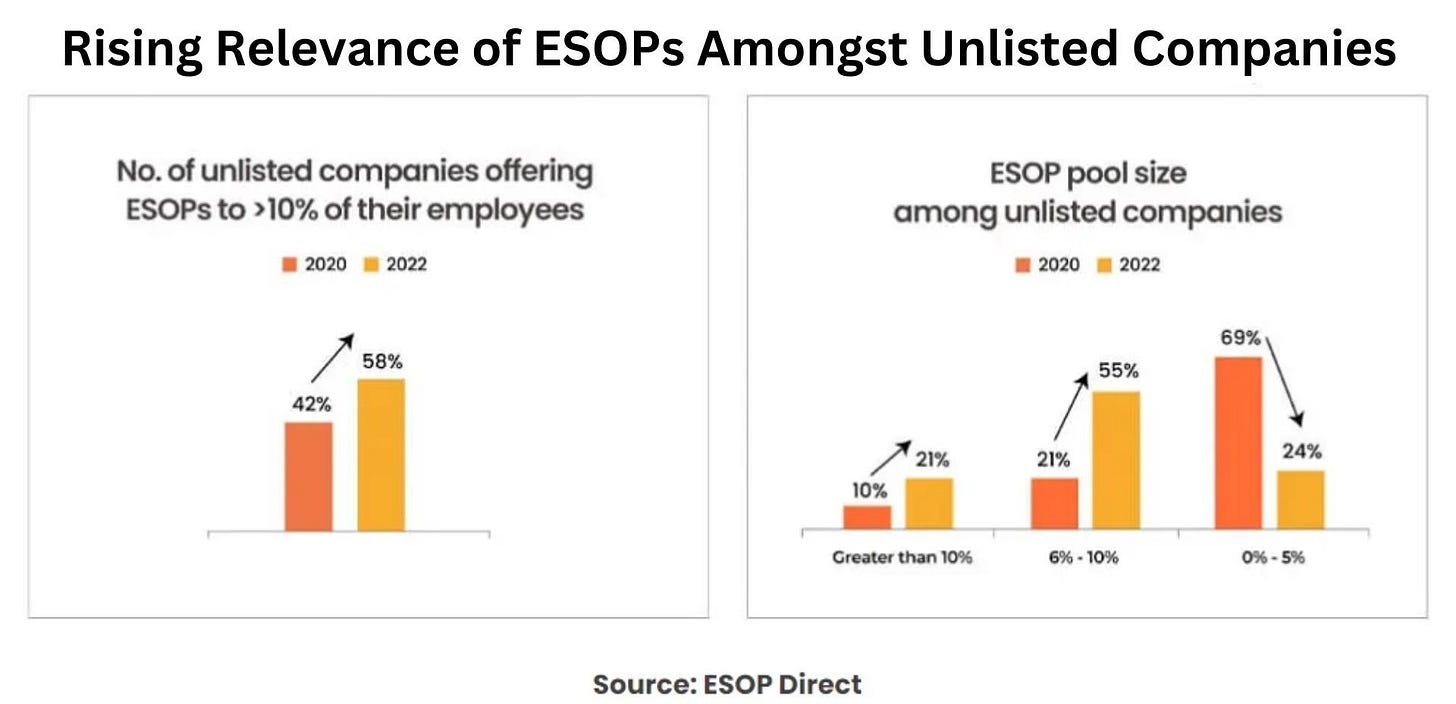
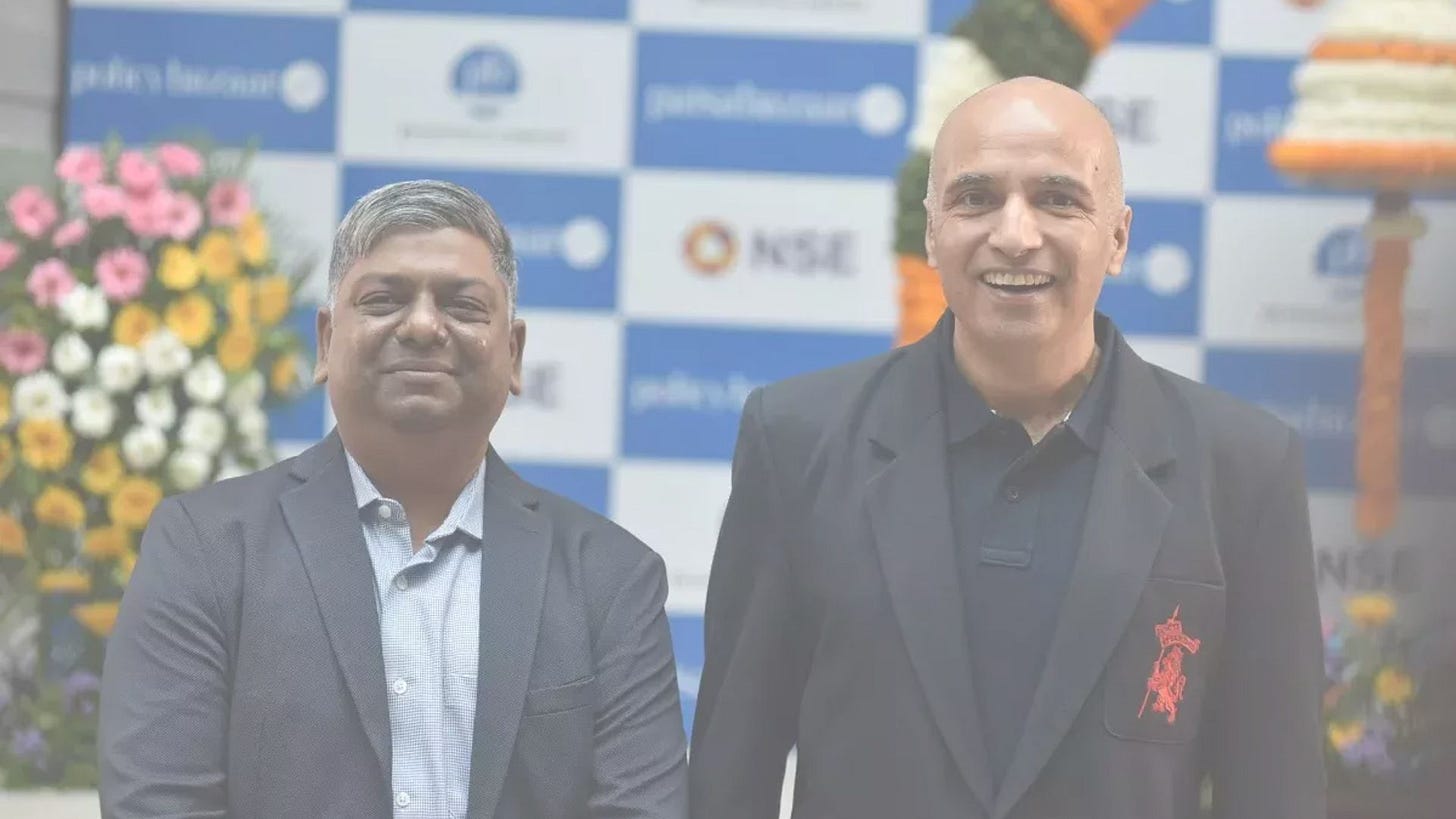
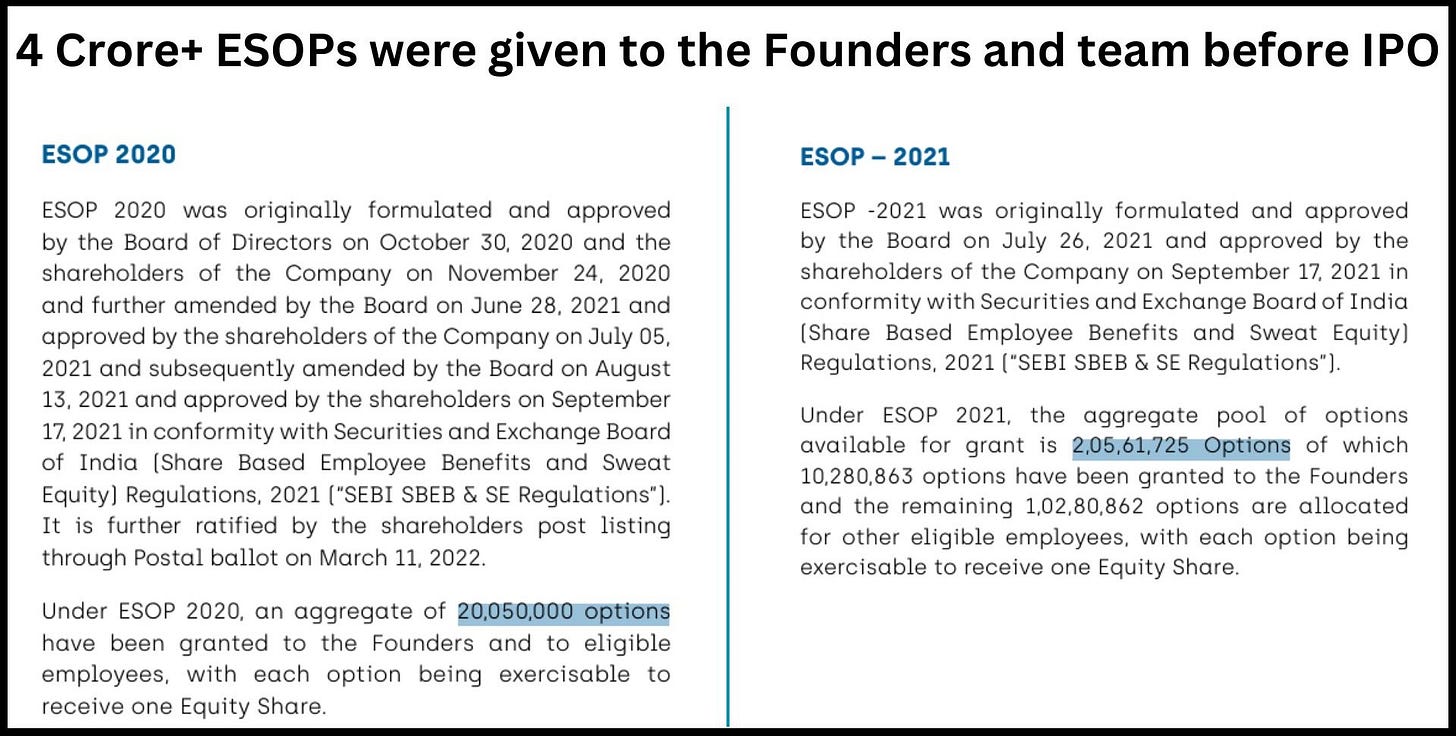
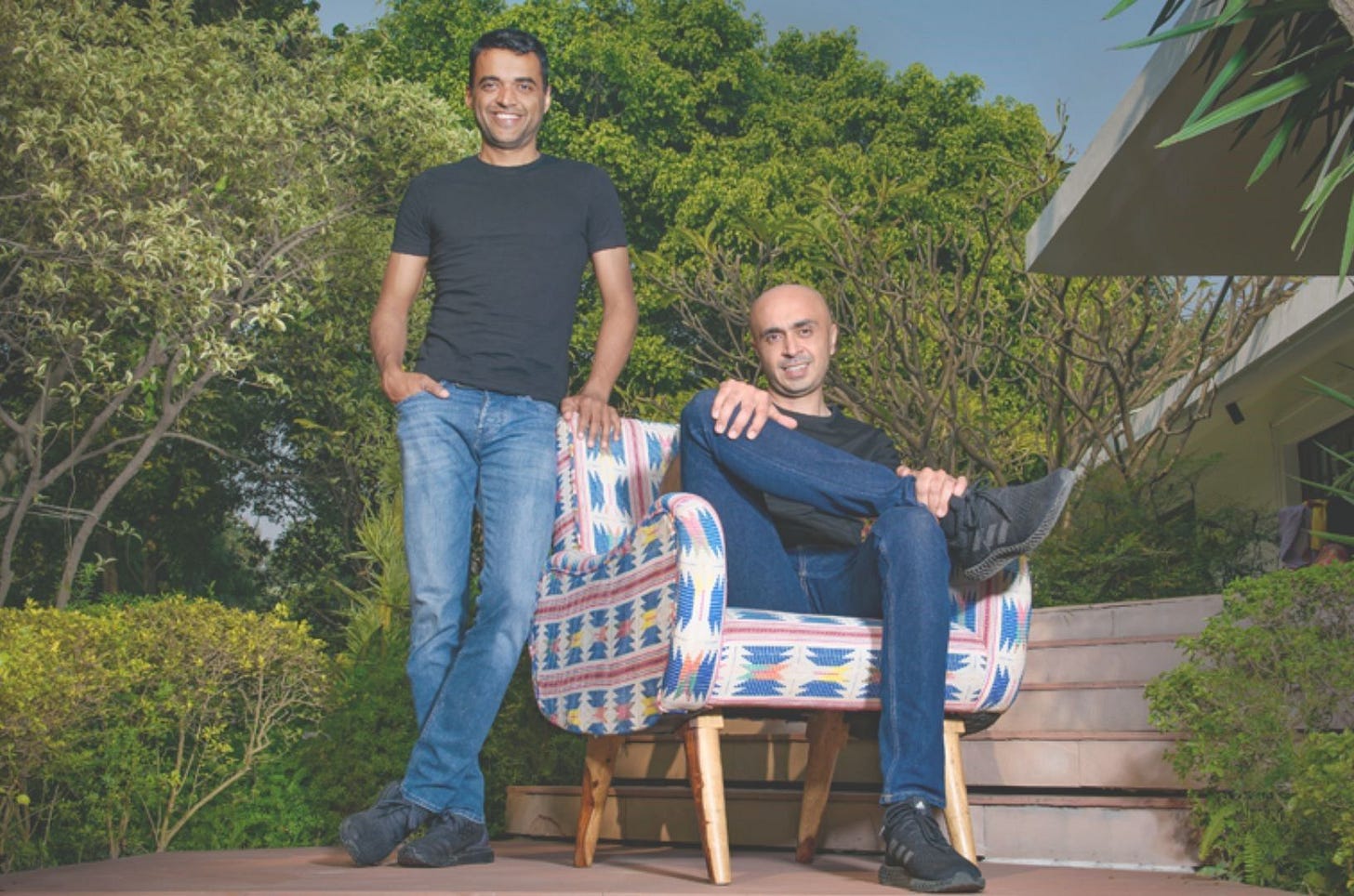

Really good writeup, ESOPs are the way to go to build a culture of high performing individuals 💪
Quite an interesting read. No wonder why DLF too is enjoying this ESOP sale party to some extent